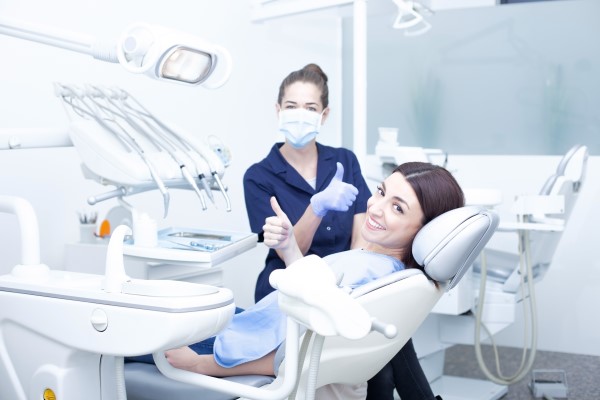Dental Check-up FAQs: Oral Cancer Screening

Patients who schedule a routine dental exam may not realize that an oral cancer screening can be included during the visit. An examination for oral and oropharyngeal cancers is an essential part of health care that should be performed annually or any time a patient notices an irregularity in the mouth, gums or throat. When performed during a regular dental check-up, the screening takes only moments and is noninvasive.
Frequently asked questions about oral cancer screening during dental visits
Dental appointments are not just a health check for teeth and gums. A screen for oral cancer should also be included at least annually. Patients may have questions about the necessity of the practice or questions about the screening itself. Some of the most frequently asked questions include the reason for the screening, the demographic of people who need to be screened and the steps taken during a screening.
What is the purpose of an oral cancer screening?
An oral cancer screening is performed by a physician or a dentist with a goal of identifying cancers of the mouth and throat as early as possible. When oral cancers are found early, there is a greater potential for successful treatment. If pre-cancerous lesions are found during an early screening, they can typically be removed before the cancer develops into a later stage. Although not all patients are at the same risk level, by screening all patients regularly more cases have the potential to be discovered early.
Who needs to be screened for oral cancer?
All dental patients should be screened annually for oral and oropharyngeal cancers. Some patients are at a higher cancer risk than others. It is especially important for high-risk patients to receive a screening with dental visits. Patients who use tobacco in any form, use alcohol heavily, have excessive sun exposure or have a history of oral cancer are at an elevated risk. Some oral cancers are related to the human papillomavirus, so patients who have known HPV of the mouth or throat should also receive frequent screening.
What happens during a screening?
Initial screenings for oral cancer are entirely noninvasive. The dentist or physician performing the screening views the interior of the mouth in search of patches of discoloration that are red or white in color. Any abnormalities in the mouth tissues such as lumps or hard areas that can be palpated are also noted. To check for signs of swollen lymph nodes or other lumps, the provider examines the area around the neck and jawline. After an initial screening has been completed, the dentist or physician schedules either a follow-up visit or a biopsy for patients with abnormal screening results.
Conclusion
Although the risk of oral cancer is not the same for all patients, it is important for everyone to receive a regular oral cancer screening. This check can be completed by a dentist during a regularly scheduled dental visit. Screenings are fast and noninvasive and can help catch many oral cancers before they progress to a stage that is more difficult to treat.
Request an appointment here: https://www.highlandsdentaldallas.com or call Highlands Family Dentistry at (214) 491-5362 for an appointment in our Dallas office.
Check out what others are saying about our dental services on Yelp: Oral Cancer Screening in Dallas, TX.
Related Posts
Your general dentist can help you achieve optimal dental health. Routine dental checks can even improve the way you care for your teeth. Busy schedules tend to prevent you from keeping your dental appointments. Making time for dental checks can help your teeth in many ways. If you want to know how routine dental visits…
X-rays, fluoride treatments, sealants, oral cancer screening, and dental cleaning are all examples of preventative dental care. Although these treatments are only given once or twice a year, they effectively prevent cavities, abscesses, and other oral illnesses. Oral cancer screening is a preventative service that you may be neglecting. Continue reading to learn why this…
Many people who have been diagnosed with oral cancer use tobacco. Tobacco can increase the risk of developing this type of cancer. The good news is that you can greatly reduce your risk of getting oral cancer by cutting out tobacco. Keep reading to learn more about this condition.A risk factor is something that increases…
The purpose of an oral cancer screening is to try and identify cancer in its earliest stages. Early detection of oral cancer can provide a better opportunity to seek treatment that is effective. Patients who are more at risk of oral cancer should consider an annual oral cancer screening. Anyone who is nervous before an oral…
